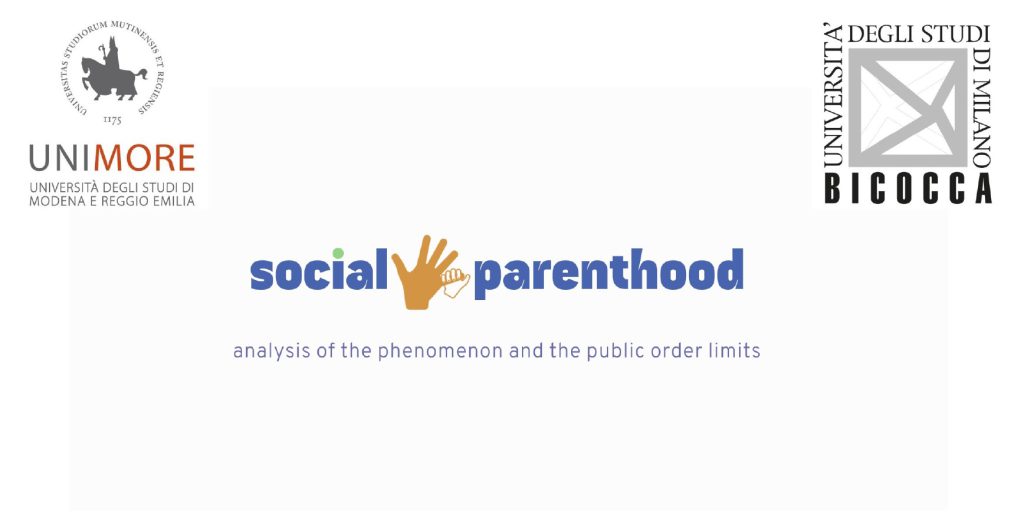

The project analyzes the new concept of social parenthood: the parental relationship not based on genetic, biological and gestational ties, but based on the responsible and conscious assumption of parental responsibility. The concept will be studied in a multidisciplinary perspective, involving a research of civil, constitutional and criminal law and dynamic analysis of sources intertwined with the topic of intended parenthood, in Italy and in other EU member states legal frameworks, such as filiation in the civil code, civil status, adoptions, citizenship, same sex partnership, artificial reproduction technologies, surrogacy, post mortem reproduction. Such an unprecedented analysis is essential for the protection of the child’s best interests, as highlighted by several High Courts rulings (e.g. Cass. civ., Sez. Un., 9006/2021; Corte cost., 32-33/2021) and for a systematic interpretation of the civil, constitutional and criminal rules which deal with the same phenomenon.
More precisely, the project aims to verify, in a legal-positivist approach, the availability of a legal basis for the social parenthood concept, by enhancing the national case law on same sex adoption, stepchild adoption, surrogacy and heterologous fertilisation performed by a couple of women, posthomous fertilisation procedures. In the second part of the project, the team will detect the limits imposed by the public order and the underlying functions of those limits, within a shared analysis across disciplinary fields, as advocated by the Supreme Court (Cass. Civ., I sez., 1842/2022).
FOLLOW THE PROJECT ON ALL SOCIAL CHANNELS:

